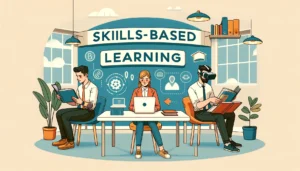Preparing your business for the leaders of tomorrow
- 6 Min Read
Suki Sandhu, HR guru and Founder and CEO, Audeliss, dissects the multi-generational workplace of today, and reveals how business leaders can transform their organisations to attract and shape the trailblazers of tomorrow.
- Author: Suki Sandhu
- Date published: Jun 18, 2019
- Categories

There is a clear generational shift taking place in the workplace today and with millennials forecast to make up 50 per cent of the global workforce by 2020 – or as much as 75 per cent by 2025 – we need to look at how we attract, retain and develop talent to nurture the future leaders of our businesses.
Currently, members of generation X – those born between 1965 and 1981 – hold 51 per cent of leadership roles globally and are thought to want to continue to move into senior leadership positions. However, the progression of their careers is said to be slower than the generation that preceded them.
Indeed, Gen X workers have achieved on average 1.2 promotions in the last five years, compared to 1.4 for the baby boomer generation (those born between 1944 and 1964) while their millennial colleagues saw 1.6 promotions over the same period of time. And there is no sign of this slowing down anytime soon. According to Deloitte, 60 per cent of millennials believe that it is possible for them to achieve both their short- and long- term career ambitions. So, what does this mean for the business leaders of today and how can they prepare their organisations for the challenges of tomorrow?
In order to attract the leaders of tomorrow, there has to be recognition and understanding that the ethos and benefits that younger people seek in a role have changed with a far greater emphasis on a business’s social attitudes. Yet evidence suggests there is a disconnect between what this group of workers want and what businesses actually do.
Deloitte’s Global Millennial Survey 2019 highlights this point clearly. It found that, for the most part, businesses are still out of sync with millennials priorities.
The survey highlighted that millennials believe businesses are underdelivering on improving society through reducing inequality and holding diversity initiatives, for instance. 32 per cent said this was a priority for them but only 16 per cent said businesses achieved this.
This was also the case with improving the environment, with 27 per cent versus 12 per cent. At a time when competition for top talent is at its most intense, surely it makes sense for organisations to do all they can to attract the people they need to take them forward? Not to mention such initiatives being the right thing to do in any case.
For a younger generation, creating a company culture of inclusion and diversity is important to workers looking to commit to a long-term future. It should be one where they can forge a career path and advance to senior positions after looking up to current business leaders who instil this culture through each stage of their progression. Companies implementing diversity initiatives to encourage diverse leadership in the future will be more likely to attract candidates. You can’t have inclusion without first having diversity and this needs to translate to modern workspaces.
Increasing representation, covering social issues and embracing diversity needs to be at the very core of a business’s ethos. Multinational professional services company, Accenture, is a great example of this. To ensure an inclusive environment to drive innovation in the workplace, they have a clear policy that ‘equality is non-negotiable.’ This includes a global Ally programme with more than 110,000 members (and growing), inclusive policies, professional development and equal opportunities for all. But Accenture is not alone in this.
Indeed, telecommunications giant Sky also has a comprehensive diversity programme, including sponsorship and training for the next generation of female leaders – alongside a target to increase this from 39 per cent to 50 per cent. They offer training and placements for young people from minority backgrounds, which is a fantastic demonstration of promoting equal opportunities and fair representation company-wide.
If we are serious about progressing young talent to fill leadership positions in the future, it is important to place emphasis on training and development to diversify skills and encourage the retention of employees. Understanding that the younger generation can provide key benefits and utilising their skills to enhance the business offer can be a great asset to a growing business. This can include instilling teamwork as a part of company culture, taking advantage of their digital skills, embracing diversity and flexibility, focusing on results, and planning for success.
The concept of reverse mentoring is a great idea when exploring how we can encourage, motivate and progress young talent. This process allows younger workers to be paired with older, senior executives in order to mentor them on topics including technology, social media and current trends.
Moreover, it creates opportunities for multiple generations to learn from each other, build relationships and provide young people with the chance to develop and gain skills that are appropriate and transferable to senior leadership roles. The ways in which multi-generational workforces operate and work are different, and it is imperative to encourage collaborative working to ensure all members of the team can excel and develop young talent into the leaders of the future.
In order to attract and retain the very best talent, investing in the future workforce is key. Implementing policies and initiatives that appeal to millennials can go a long way in increasing the longevity of your team. This is especially important as preparing your workforce to become leaders and then losing them to competitors remains a risk in a highly competitive jobs market where technology such as LinkedIn allows direct access to talent.
With young talent appreciating reassurance, progression plans, consistent meetings and reward systems, there is a lot of employers can do to retain and develop teams to work together in the future and lead the company too. Ensuring that you retain your workforce could be as simple as creating personalised development plans and following up on opportunities to enhance skills and grow as an individual.
By making success attainable, the chances are that your workforce will be receptive and loyal for the long-term. Alongside this, promoting an open and honest culture will ensure that your team feel comfortable in the workplace and can assist with mental health and wellbeing concerns. As 1 in 4 adults experience mental health issues, creating a safe space is integral to ensuring your staff feel valued, appreciated and keen to stick around to grow with the business.
The importance of creating a truly inclusive, welcoming culture and the enhancement of staff morale to encourage leadership, progression and promotion opportunities can’t be stated strongly enough. Times are changing, and so is the way in which businesses approach their employee management and initiative schemes.
The key to progressing millennials into the leadership roles of the future is focusing now on diversity, inclusion, social responsibility and wellbeing programmes. In order to prepare your business for the leaders of tomorrow, you must first focus on securing young talent and developing from within.









